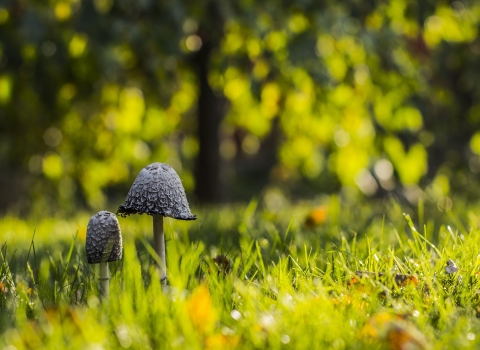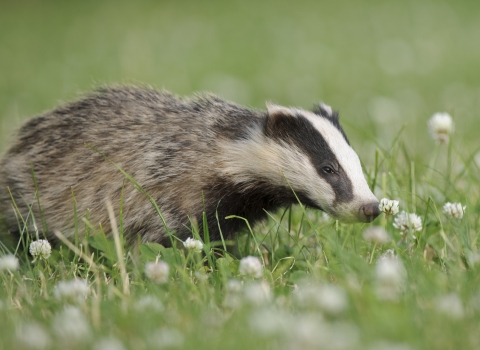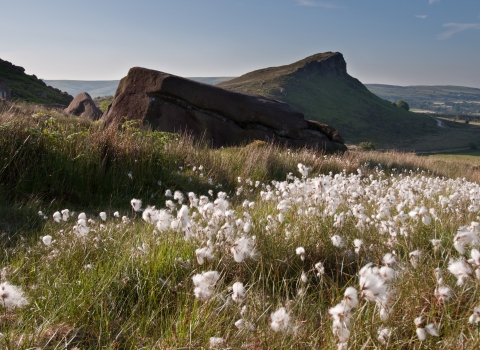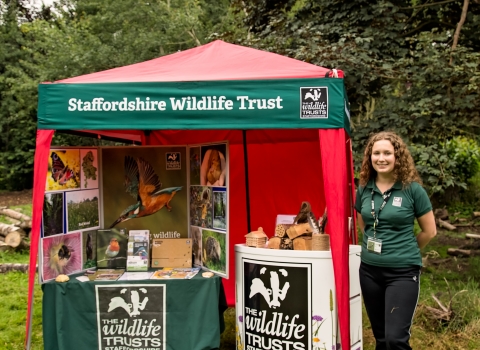Looking after Staffordshire's wildlife for over 50 years
Staffordshire Wildlife Trust is your local wildlife charity. Established in 1969 we are dedicated to protecting the county’s wildlife and wild places.
Staffordshire Wildlife Trust is the county's leading nature conservation charity. We have around 130 members of staff, who are guided by a board of trustees and supported by a network of volunteers that our work would not be possible without.
The Trust's main offices are at The Wolseley Centre in Wolseley Bridge, near Rugeley, which is also a popular visitor centre. We were the first Wildlife Trust to launch a charity shop in our mission to raise funds for Staffordshire's Wildlife.
Our work would not be possible without your support. Become a member and help us keep looking after Staffordshire's wildlife for future generations.
What we do
- We manage 45 nature reserves around the county totalling over 1,980 hectares
- We carry out conservation projects to create and restore habitats for wildlife, to ensure that the county's wild creatures have secure places where they can feed, shelter and breed
- We run events to encourage people of all ages and backgrounds to discover, enjoy and care about the natural world
- We work with families and schools to inspire a love and respect for nature and teach environmental education
- We work with communities to improve local green spaces for wildlife. Find out more about our community projects here and discover how you can support wildlife and wild places in your area.
- We campaign on behalf of the environment to protect threatened places and rare species. We advocate for nature, striving to influence policy and decisions affecting wildlife.
- We offer advice to individuals, planners, developers and landowners about how to protect and enhance gardens and habitats for wildlife
We need nature and it needs us. We’re here to make the world wilder and make nature part of life, for everyone. We’re helping to make life better – for wildlife, for people and for future generations.
Get to know us a bit better
What's happening
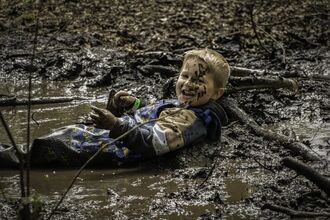
Wild activities on offer near Rugeley, Burntwood, Stoke-on-Trent and Biddulph during February half-term
Embark on a wild family adventure this February and encourage your children to discover the delights of the natural world.
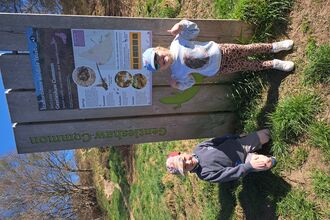
Beloved Timmy Time characters and thousands of little legs set to take big steps for nature this spring
6-year-old Carter and his sister Violet, age 4, from Cannock Wood, are asking children across the county to join them in a wild…
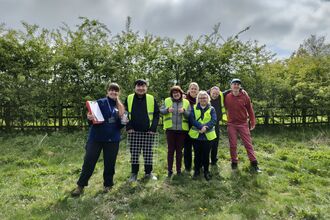
Nature in Your Neighbourhood: A Year of Amazing Discoveries
What a year it’s been for the Nature in Your Neighbourhood project. People in the Staffordshire Moorlands have been busy learning and…
Articles of Association

The bigger picture
The Wildlife Trusts is a movement made up of 46 Wildlife Trusts: independent charities who all share a mission to create living landscapes and living seas and a society where nature matters.
Each Wildlife Trust is a member of the Royal Society of Wildlife Trusts (RSWT) which is a registered charity in its own right, founded in 1912. The central charity’s role is to ensure a strong voice for wildlife at a UK and England level and to lead the development of the movement. You can find out more about the history of The Wildlife Trust here.
Together the 46 Trusts and RSWT are known as The Wildlife Trusts. Read about The Wildlife Trust movement here.
There are thirty-seven Trusts in England, five in Wales, a Trust for Scotland and a Trust for Northern Ireland. There are also Trusts in Alderney and the Isle of Man. Each of the Wildlife Trusts is a registered charity.
Our Year for Wildlife & Climate
Our Year in Wildlife and Climate 2025 Impact video (https://youtu.be/TfVD5jpjq7w)
The Royal Society of Wildlife Trusts

